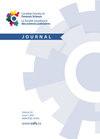Abstracts From the 2018 CSFS Conference
IF 0.2
Q4 MEDICINE, LEGAL
Canadian Society of Forensic Science Journal
Pub Date : 2019-01-02
DOI:10.1080/00085030.2019.1567784
引用次数: 0
Abstract
s From the 2018 CSFS Conference (Gatineau, QC, April 30–May 4, 2018) WORKSHOPS Forensic science, the bar and the bench Organizer: Tobin Tanaka This educational one-day symposium is intended to provide an opportunity for members of the bar, and bench, and forensic scientists to discuss a variety of topics relating to the interaction of forensic science and the legal system. It is intended that this symposium will permit the possibility for a free exchange of how the forensic sciences can assist all parties in the legal system, in particular the courts. As the courts are the ultimate client and consumer of the proffered forensic evidence, insights from the bench on how forensic reports and testimony may provide truly expert evidence would be most welcome. The first part (morning session) of the symposium provides an overview of those forensic disciplines represented by the CSFS, each providing a 15-minute overview of their respective specialization. The forensic disciplines include: Anthropology/Medical Odontology, Biology, Chemistry, Documents, Engineering, Firearms and Toxicology. In each overview the scope and foundation, education, training and research for each forensic discipline will be provided. Specifically, how these factors may be considered in the admissibility of expert evidence under the four part criteria of R. v. Mohan, the reporting of findings, and the weight of admitted forensic expertise will discussed. The second part (afternoon session) will be a discussion between the legal community and forensic scientists. The topics of best practices, the interaction that counsel has with forensic scientists, and court room testimony are anticipated areas of discussion. All forensic scientists, lawyers, judges, students and other stakeholders in the justice system are welcome to participate in this workshop. Theory of the logical approach for forensic handwriting casework Presenter: Brent Ostrum Objectives: At the end of the workshop participants will have a working knowledge of the logical approach to evidence evaluation. They will understand how the approach works and the requirements for its application, and also be able to explain pros, cons and limitations. Synopsis: This workshop presents the logical approach to evidence evaluation and discusses this approach contrasting it with the ’traditional’ approach used in most labs today. Distinctions between the logical approach, the likelihood-ratio approach and a Bayesian approach will be explored. Pros, cons and requirements for the proper use of each approach, including the ‘traditional’ approach, will be discussed. The current scientific and legal status of the logical approach, both worldwide and in Canada, will be addressed with discussion of various initiatives in other countries that can be expected to have an impact on the Canadian scene. There is a strong lecture component to the workshop; however, it is also interactive in that participants will discuss various issues in smaller working groups, as appropriate. Participants will be tested to determine whether or not the basic information has been learned. This session is aimed primarily at forensic practitioners (in any discipline) but will be of value to anyone interested in the topic (e.g., lawyers, judges). Examples are drawn primarily from forensic document examination, but not exclusively, and the general concepts apply equally to all domains and disciplines.2018年CSFS会议摘要
s来自2018年CSFS会议(Gatineau,QC,2018年4月30日至5月4日)WORKSHOPS法医学、律师和法官席组织者:Tobin Tanaka本次为期一天的教育研讨会旨在为律师、法官和法医科学家提供一个机会,讨论与法医学和法律体系互动相关的各种主题。本次专题讨论会旨在允许自由交流法医学如何帮助法律体系中的各方,特别是法院。由于法院是所提供法医证据的最终客户和消费者,法官对法医报告和证词如何提供真正的专家证据的见解将是最受欢迎的。研讨会的第一部分(上午会议)概述了以CSFS为代表的法医学学科,每个学科都提供了15分钟的各自专业概述。法医学学科包括:人类学/医学古生物学、生物学、化学、文献、工程、火器和毒理学。在每一次概述中,都将提供每个法医学科的范围和基础、教育、培训和研究。具体而言,将讨论如何根据R.v.Mohan四部分标准在专家证据的可采性、调查结果的报告以及公认的法医专业知识的重要性中考虑这些因素。第二部分(下午的会议)将是法律界和法医科学家之间的讨论。最佳做法、律师与法医科学家的互动以及法庭证词是预期的讨论领域。欢迎所有法医科学家、律师、法官、学生和司法系统的其他利益攸关方参加本次研讨会。法医笔迹案例工作的逻辑方法理论演示者:Brent Ostrum目标:在研讨会结束时,参与者将了解证据评估的逻辑方法。他们将了解该方法的工作原理及其应用要求,并能够解释优点、缺点和局限性。简介:本研讨会介绍了证据评估的逻辑方法,并讨论了这种方法与当今大多数实验室使用的“传统”方法的对比。将探讨逻辑方法、似然比方法和贝叶斯方法之间的区别。将讨论正确使用每种方法(包括“传统”方法)的优点、缺点和要求。逻辑方法目前在世界各地和加拿大的科学和法律地位将通过讨论其他国家可能对加拿大产生影响的各种举措来解决。研讨会有一个强有力的讲座组成部分;然而,它也是互动的,参与者将酌情在较小的工作组中讨论各种问题。参与者将接受测试,以确定是否已经学习了基本信息。本次会议主要针对(任何学科的)法医从业者,但对任何对该主题感兴趣的人(如律师、法官)都有价值。例子主要来自法医文件检查,但不限于此,一般概念同样适用于所有领域和学科。
本文章由计算机程序翻译,如有差异,请以英文原文为准。
求助全文
约1分钟内获得全文
求助全文

 求助内容:
求助内容: 应助结果提醒方式:
应助结果提醒方式:


